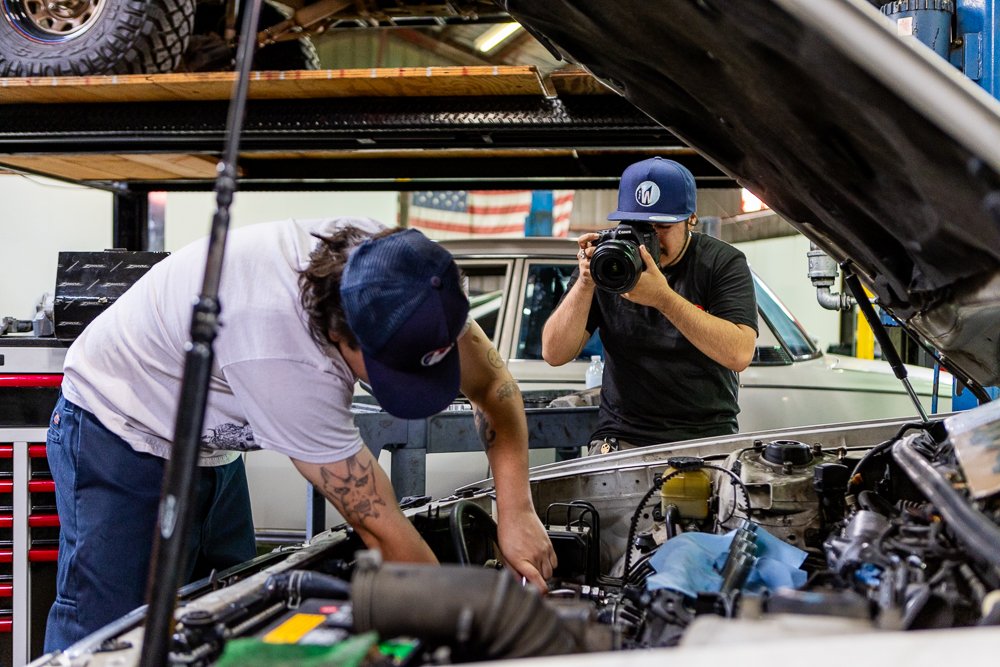A Welcoming Community for Emancipated Foster Youth
October 15th, 2024 | Ashley Hendrickson
Engaging a community with complex needs can feel overwhelming, especially when the systems designed to help fall short. For young people aging out of foster care, the path to thriving independence is full of roadblocks like limited support, broken relationships, and a lack of resources. These challenges lead to many difficult outcomes—statistics on youth aging out of the foster care system show that 50% are either homeless or incarcerated within two years of emancipation. In the communities we serve, it can be easy to get caught up in the enormity of such issues and feel unsure of where to begin. How should we serve, and when, and where? DSF Werks, a non-profit organization working with foster youth, offers a clear way forward. Their people-focused approach provides an excellent example of how to love one’s community and create practical solutions that build hope, community, and lasting change.
Engaging Community Needs
DSF Werks is a local non-profit that uses the mediums of classic car restoration and media arts to build relationships and practical skills among underserved young adults and emancipated foster youth. They host a weekly event called “Motor Mondays,” where youth, mentors, and community members gather to hang out, share a meal together, and work on vehicle restoration projects. Regular workshops related to the media arts, including digital photography, film photography, editing, and social media offer another way for youth to learn new skills and build community. DSF Werks also offers a robust full-time paid internship program that equips young men and women to thrive as they transition into independent living. As part of the internship program, participants take charge of restoring a classic car, developing workplace and life skills related to mechanics, business, communication, and relationships.
What makes DSF stand out is the deep relational investment it makes in each young person. While governmental funding is available for the schooling, vocational training, housing, food, and other practical needs of emancipated foster youth, many leave the system without any relational support or natural way to build healthy community. This is evident to any outsider, but also a felt need amongst the youth themselves.
Joel Lueb, the founder of DSF Werks, shared a story illustrating this point: “I asked our interns to write down ideas for field trips that we could do together. I was thinking about going to mechanic shops, car restoration places, and parts companies. But a couple of the intern’s ideas for field trips had nothing to do with the practical disciplines I was thinking of developing. The interns were interested in going on hikes. When I asked them why, they said, ‘It helps us grow closer together.’ It is really significant that relational needs are the most pronounced for these youth.”
Bringing People Together
DSF Werks engages widely with the community around it beyond just serving foster youth. For example, the non-profit involves volunteers who teach mechanical skills, run various workshops, and mentor youth. This is obviously significant for program participants, but it is also significant for the volunteers themselves. Many are retired auto mechanics who find themselves with a working skill but no one to practice or share their trade with. DSF Werks provides a place for retired professionals to pass their skills on to the next generation of mechanics and make a difference by sharing wisdom from their lives with youth in each program.
Volunteers in their 20s and 30s have also found a place at DSF Werks, realizing that they can use their skills and passions to serve others. This is significant because many younger people wonder how they can create lasting change and how their own unique characteristics can fit into the ways they engage with their community. DSF Werks provides a healthy example of people coming together and serving others with the skills, interests, and relationships they have already been given. Even volunteers without mechanical or media related skills have been able to serve by cooking meals or teaching classes on topics they have expertise in and recognize could be helpful for youth to learn about, like financial literacy. DSF Werks is a strong example of how local people and resources can be brought together to catalyze organic, empowering, and community-based change.
Empowered By Love
While DSF Werks is not formally a faith-based organization, its founders and a number of its volunteers are followers of Jesus who seek to imitate his example of love. DSF Werks is ultimately only able to see value in, live alongside of, and serve marginalized youth because of Christ’s own example of sacrifice and humility. Marci Tasche, co-founder of DSF Werks, shared, “It's just like discipleship. I've been given a gift and tools to live life in an upright way. My goal is to be of service to the next person and walk alongside them through my role at DSF Werks.” Joel shared something similar: “The ground is level at the foot of the cross. Each person that we're interacting with is made in the image of God. Our faith gives us the opportunity to love and to serve humbly because that's what Christ did. He came to serve, as a human, shoulder to shoulder with us. In the same way, we come to serve with these youth, live life with them, and be a part of their lives as we're inviting them to be a part of ours.”
“Our faith gives us the opportunity to love and to serve humbly because that’s what Christ did... We come to serve with these youth, live life with them, and be a part of their lives as we’re inviting them to be a part of ours.””
DSF Werks’ example leaves us with a good opportunity for reflection. Are we serving the communities around us with the same kind of love, humility, and welcome? Are we empowering others to get involved with the passions and skills God has given them? Are we prioritizing people and relationships in the outcomes we seek?
May we all be people who display these things as evidently as our friends at DSF Werks.
Listen to Joel’s recent episode on the Collective Impact Podcast.









